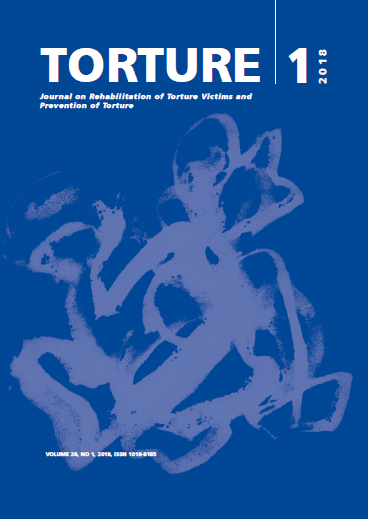An ethical and aesthetic challenge: symbolic reparation and the construction of memory
DOI:
https://doi.org/10.7146/torture.v28i1.105479Abstract
This article concerns the Clínicas do Testemunho, a pilot project carried out in Rio de Janeiro, which was supported by the Amnesty Commission of the Brazilian Ministry of Justice and was carried out between 2013 and 2015. It highlights how giving testimony can be a vehicle for psychological reparation and can help in the process of constructing individual and collective memory, as well as resistance. The article begins with a narrative about the dictatorship and the struggle for Memory, Truth, Justice and Reparation that followed, showing how psychological reparation emerged as one of the components of this process. Through the clinical experience, it highlights the effects of persecution and torture on subjectivity, and the use of clinical strategies and devices that produce changes in subjectification. It also highlights testimony as an important part of the reparation process and its role in the construction of memory and democracy.
Downloads
Published
How to Cite
Issue
Section
License
We accept that some authors (e.g. government employees in some countries) are unable to transfer copyright. The Creative Commons Licence Attribution-NonCommercial-NoDerivatives 4.0 International (CC BY-NC-ND 4.0) covers both the Torture Journal and the IRCT web site. The publisher will not put any limitation on the personal freedom of the author to use material contained in the paper in other works which may be published, provided that acknowledgement is made to the original place of publication.


